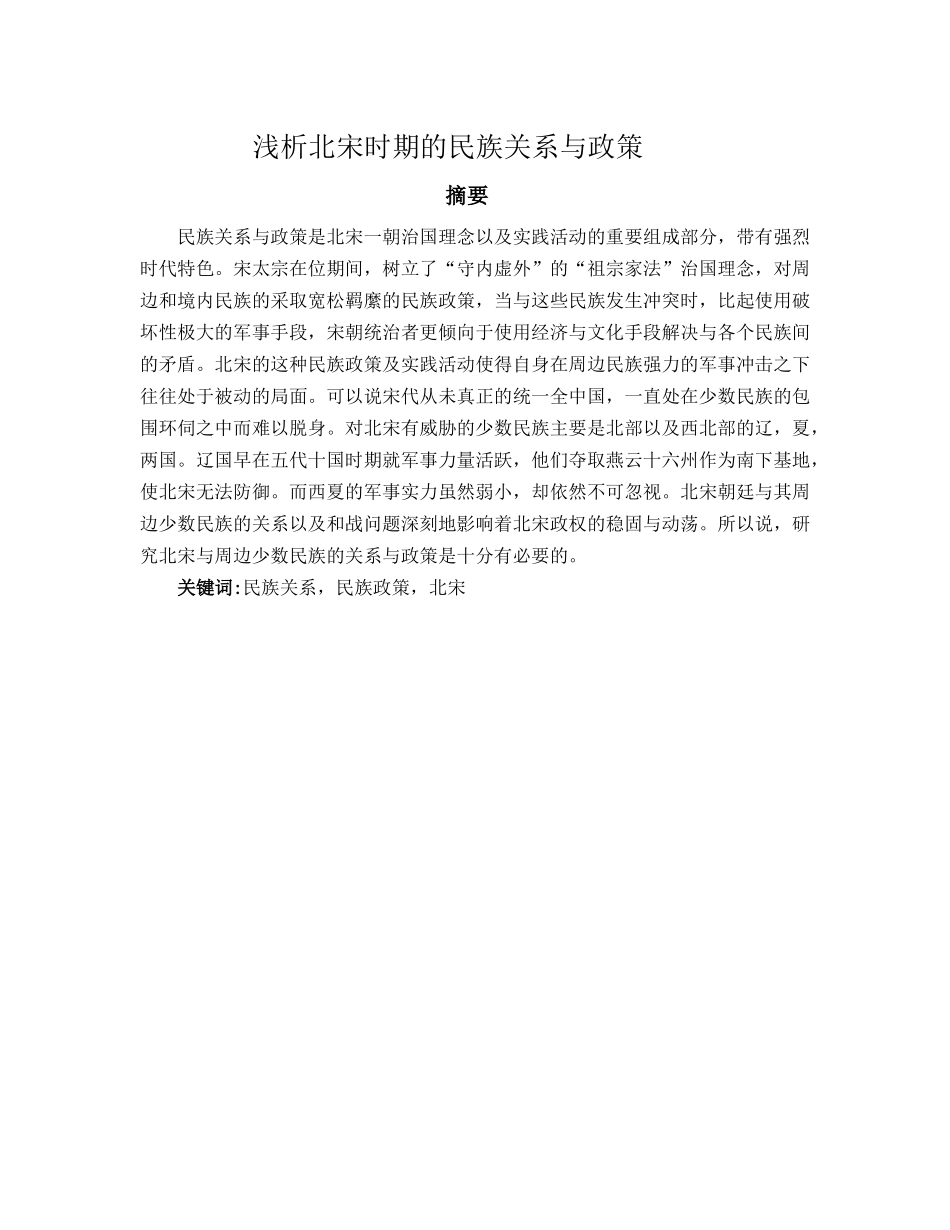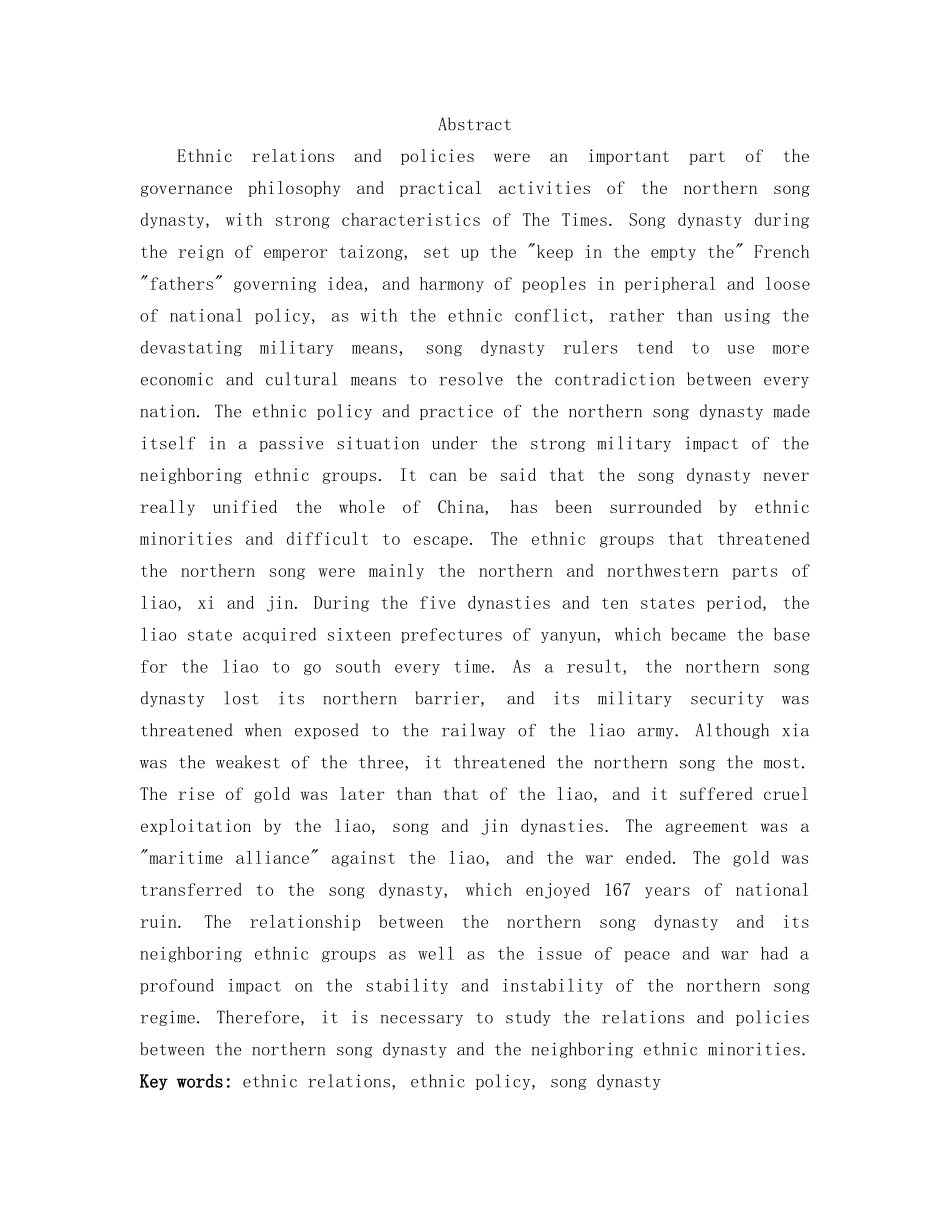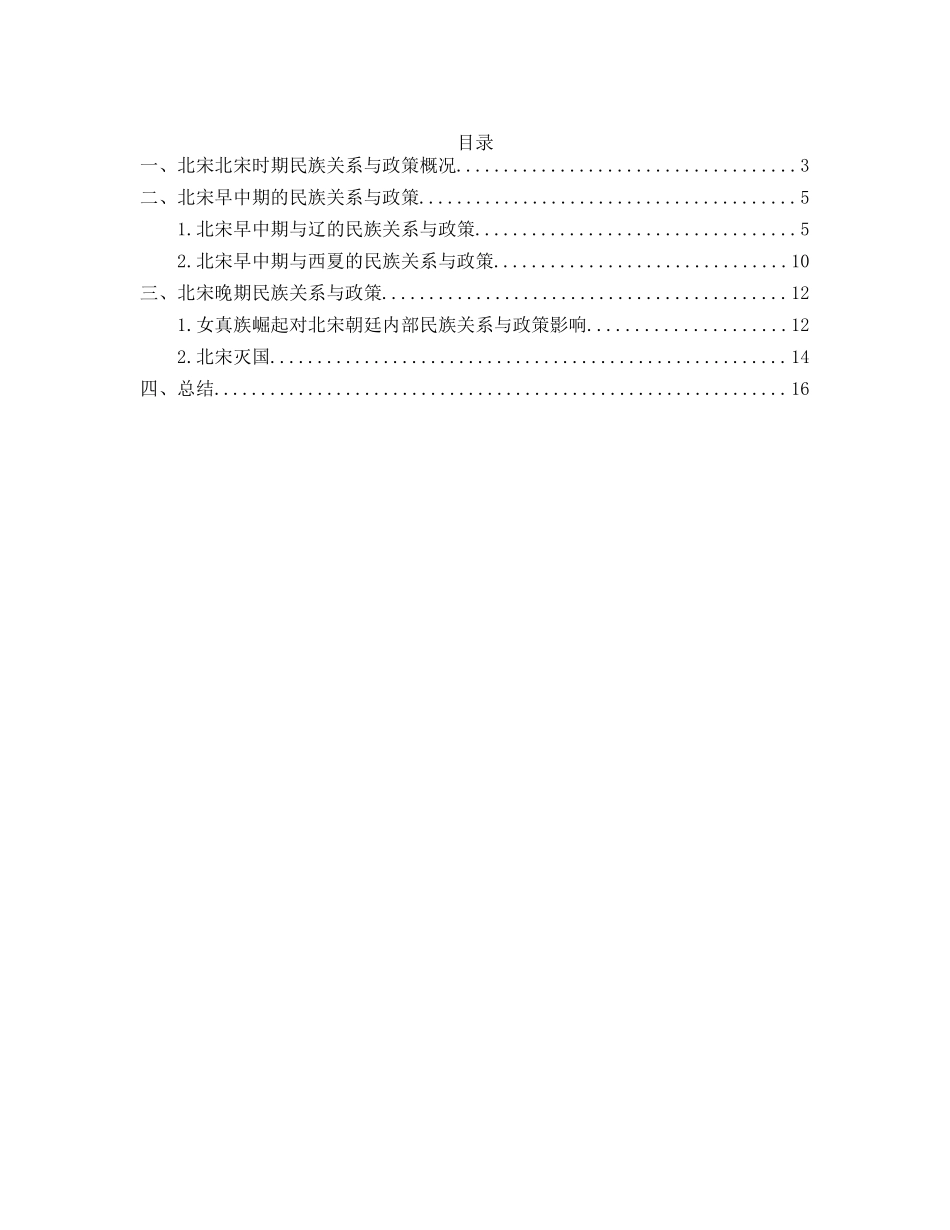浅析北宋时期的民族关系与政策摘要民族关系与政策是北宋一朝治国理念以及实践活动的重要组成部分,带有强烈时代特色。宋太宗在位期间,树立了“守内虚外”的“祖宗家法”治国理念,对周边和境内民族的采取宽松羁縻的民族政策,当与这些民族发生冲突时,比起使用破坏性极大的军事手段,宋朝统治者更倾向于使用经济与文化手段解决与各个民族间的矛盾。北宋的这种民族政策及实践活动使得自身在周边民族强力的军事冲击之下往往处于被动的局面。可以说宋代从未真正的统一全中国,一直处在少数民族的包围环伺之中而难以脱身。对北宋有威胁的少数民族主要是北部以及西北部的辽,夏,两国。辽国早在五代十国时期就军事力量活跃,他们夺取燕云十六州作为南下基地,使北宋无法防御。而西夏的军事实力虽然弱小,却依然不可忽视。北宋朝廷与其周边少数民族的关系以及和战问题深刻地影响着北宋政权的稳固与动荡。所以说,研究北宋与周边少数民族的关系与政策是十分有必要的。关键词:民族关系,民族政策,北宋AbstractEthnic relations and policies were an important part of the governance philosophy and practical activities of the northern song dynasty, with strong characteristics of The Times. Song dynasty during the reign of emperor taizong, set up the "keep in the empty the" French "fathers" governing idea, and harmony of peoples in peripheral and loose of national policy, as with the ethnic conflict, rather than using the devastating military means, song dynasty rulers tend to use more economic and cultural means to resolve the contradiction between every nation. The ethnic policy and practice of the northern song dynasty made itself in a passive situation under the strong military impact of the neighboring ethnic groups. It can be said that the song dynasty never really unified the whole of China, has been surrounded by ethnic minorities and difficult to escape. The ethnic groups that threatened the northern song were mainly the northern and northwestern parts of liao, xi and jin. During the f...


